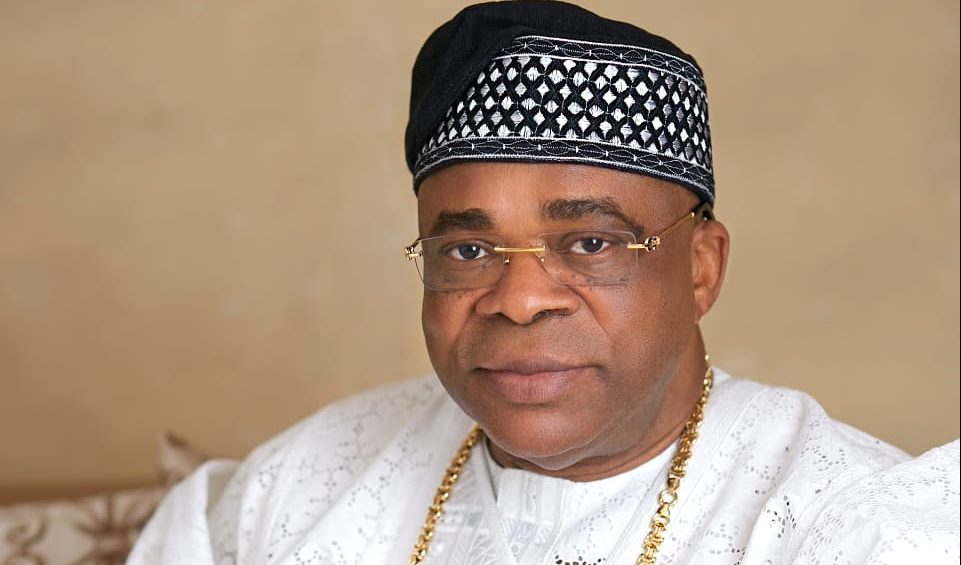The installation of Oba Clement Adesuyi Haastrup as the Owa Obokun of Ijeshaland, Osun State, has sparked a heated controversy, with the Ofokutu Royal Dynasty, one of the families eligible to the throne, vehemently contesting the selection process. The Ofokutu family alleges that the Osun State government, led by Governor Ademola Adeleke, disregarded established traditions, ignored a court injunction, and politicized the kingship in favor of Haastrup. The family contends that it was their turn to present a candidate for the revered position, citing historical precedent of rotation among ruling houses. This perceived injustice has ignited tensions within the Ijeshaland community and raised questions about the integrity of the selection process.
The Ofokutu family’s grievances center on several key points. Primarily, they argue that the selection process was manipulated to ensure Haastrup’s ascension, thereby denying them their rightful opportunity to present a candidate. They claim that the N10 million fee required from each contestant served as a barrier to entry, further disadvantaging their family. Furthermore, they allege that the government’s actions have undermined centuries-old traditions and customs that govern the selection of the Owa Obokun. This perceived disregard for tradition has not only caused offense to the Ofokutu family but also raised concerns about the preservation of Ijeshaland’s cultural heritage.
Adding fuel to the fire is the Ofokutu family’s assertion that a court injunction barring Haastrup’s installation was ignored by the state government. This alleged disregard for the judicial process further strengthens their claim of a biased and predetermined outcome. The family insists that Haastrup lacks the necessary qualifications and challenges him to undergo traditional rites to prove his eligibility. Princess Oluwatoyin Faloye, a member of the Ofokutu family, specifically challenges Haastrup to enter the ‘Ipebi,’ a sacred chamber where traditional rites are performed, asserting that only a qualified candidate can successfully complete the rituals.
In response to these accusations, the Osun State government, represented by Commissioner for Local Government and Chieftaincy Affairs, Dosu Babatunde, denies any wrongdoing. Babatunde characterizes the allegations as “barefaced lies and a distortion of facts.” He maintains that the state government adhered to due process in the selection of Haastrup, emphasizing that the process was not politicized. Regarding the court injunction, Babatunde claims that it was set aside by the same court that initially granted it. This conflicting narrative further complicates the matter and highlights the deep divide between the Ofokutu family and the state government.
The heart of this dispute lies in the interpretation of tradition and the perceived manipulation of the selection process. The Ofokutu family believes that established customs were disregarded to favor a specific candidate, while the government maintains that it followed due process. This clash of perspectives underscores the importance of transparency and adherence to established norms in matters of traditional leadership. The controversy also highlights the potential for political interference in chieftaincy affairs, a sensitive issue that can destabilize communities and erode trust in governing institutions.
The installation of Oba Clement Adesuyi Haastrup as the Owa Obokun of Ijeshaland has thus become a focal point of contention, raising fundamental questions about tradition, fairness, and the role of government in chieftaincy affairs. The Ofokutu family’s persistent challenge to the selection process reflects their determination to uphold what they perceive as their rightful claim to the throne and protect the sanctity of Ijeshaland’s traditions. The ongoing dispute underscores the need for a thorough and impartial investigation to address the concerns raised and ensure the preservation of cultural heritage while respecting the rule of law. The future of the Owa Obokun’s reign depends on a resolution that acknowledges the validity of both tradition and due process, thereby fostering reconciliation and unity within the Ijeshaland community.














